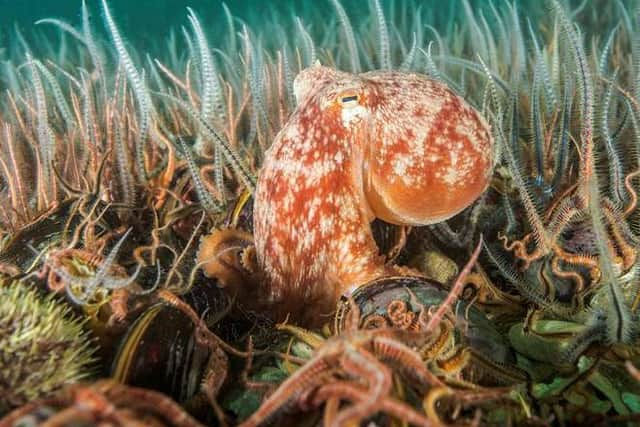Damaging fishing is taking place 'in almost all of the UK's offshore protected areas'
Some 98 per cent of “protected” underwater habitats – including Dogger Bank off Yorkshire’s coast – are being “bottom trawled”, according to research by conservationists.
The method of fishing which involves dragging heavy, weighted nets across the sea floor, churns up the seabed and releases carbon into the atmosphere, the Marine Conservation Society (MCS) said.
Advertisement
Hide AdAdvertisement
Hide AdIt is calling for a ban on the practice, which is only outlawed on five per cent of all UK marine-protected areas, saying it is akin “to bulldozing a national park”.


A report by scientists at the MCS found that all but one of the offshore MPAs designated to protect the seabed experienced bottom trawling and dredging between 2015 and 2018.
During that time, supposedly protected sandbanks and reefs saw at least 89,894 hours of fishing by vessels using gear that can damage the seabed.
The MCS says following Brexit, the Government has the power to act more independently, and now is the time after more than a decade of calls for UK seas to be adequately protected.
Advertisement
Hide AdAdvertisement
Hide AdDr Jean-Luc Solandt said: “Without a ban on this form of fishing, these areas of our seas simply aren’t recovering and we’re missing a crucial opportunity to combat climate change and ensure there are indeed plenty more fish in the sea.”
But the York-based National Federation of Fishermen’s Organisations branded the call a knee jerk reaction and a “crowd pleaser”, saying a collaborative, science-based approach was needed to avoid fishing boats being displaced, potentially with harmful consequences.
Chief executive Barrie Deas likened it to the Highland Clearances, where people were forcibly evicted from their homes, saying: “If you close one area and displace them into another that has consequences for the fishermen working in that area.”
Dogger Bank was named after the “doggers”, medieval Dutch fishing boats which targeted cod.
Advertisement
Hide AdAdvertisement
Hide AdA huge shallow sandbank, which measures about 160 by 60 miles in extent, during the last Ice Age it was part of a large land mass connecting to the Continent known as Doggerland.
Fishermen from Bridlington fished there for cod and haddock before stocks slumped and the port switched to fishing for crab and lobster.
The charity says the Dogger Bank Marine Protected Area experienced at least 2,623 hours of bottom trawling between 2015 and 2018, with the UK and Dutch fleets mainly responsible.
Comment Guidelines
National World encourages reader discussion on our stories. User feedback, insights and back-and-forth exchanges add a rich layer of context to reporting. Please review our Community Guidelines before commenting.